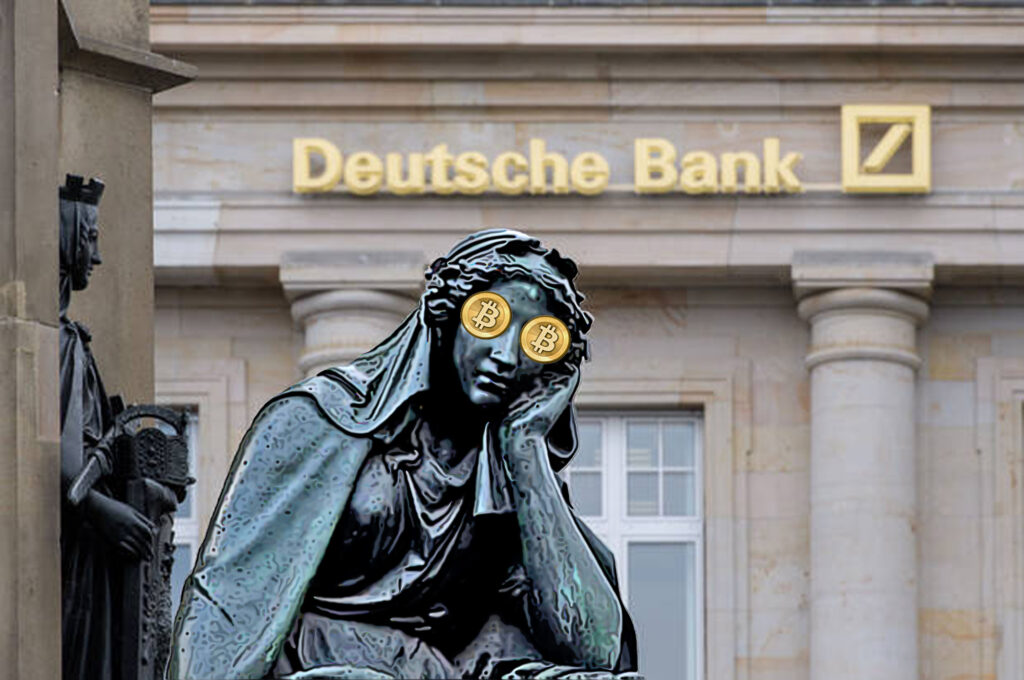The adoption rate of cryptocurrencies is increasing. Germany has recently passed a law that allows banks to store cryptocurrencies. Find out the exact story!
Bitcoin made its appearance amidst the chaos of financial crises all over the world in 2008. The intention of creating this cryptocurrency was to minimize the centralized power held by governments and the banks.
The opinion of the writer is their own and do not constitute financial advice in any way whatsoever. Edited by Sean Vanian, contributor for The Coin Radar.
Yet, a decade later, the concept of digital currency has not been accepted in many parts of the world. A number of countries have rejected the idea of engaging in any kind of cryptocurrency. By enforcing strict regulatory guidelines and tax regimes, governments have directly or indirectly banned its people in engaging in such activities.
However, the outlook seems to be gradually changing. Governments and banks around the globe have started realizing the value that cryptocurrencies can bring to the table. Crypto-Friendly Nations
Few countries around the globe have warmed up to the idea of cryptocurrencies. They have established a clear regulatory framework for blockchain startups as well as digital currency; which many governments to date, have failed to do so.
Malta, a tiny European Island nation, has come to be known as a crypto-friendly nation. In 2018, the government set up individual authorities specifically dedicated to regulations for crypto and blockchain business. On more than one occasion, its prime minister has advocated the use of cryptocurrency calling it ‘the inevitable future of money’.
Japan is another country with a positive attitude towards cryptocurrency developments. From recognizing bitcoin as a legal tender to setting regulatory guidelines, Japan has officially acknowledged the value of crypto.
Switzerland has become one of the most progressive nations for crypto-related affairs. After passing liberal laws pertaining to cryptocurrency, Zug, a town in Switzerland has become well known as ‘Crypto Valley’. The nation has sanctioned a transparent framework for mining profits, salaries in crypto, and even bank transfer and deposits for cryptocurrency.
Aside from this, Bermuda, Estonia, Georgia, Singapore are some other nations that have accepted the formation of crypto laws. The latest country to join this line is Germany Germany Passes Law Allowing Banks to Store Cryptocurrency
Recently Germany has taken a proactive approach to innovative solutions concerning the space of blockchain and cryptocurrency. The parliament of Germany has passed a law that allows banks to sell as well as store cryptocurrencies.
The law, which takes effect from January 1, 2020, will enable banks to offer cryptocurrency custody services. Furthermore, the law enforces that banks and crypto service providers need to comply with certain regulations. This includes acquiring an official license from the financial regulator of Germany- Bafin.
With such a progressive stance towards cryptocurrencies, Germany is certainly leading the way for adoption towards cryptocurrencies. Moreover, apart from this, the country has also shown support for security tokens. The STO’s, an emerging and innovative solution, are also being approved by the Germany jurisdiction.
Aside from Germany, the number of other countries including Thailand and South Korea are devising regulatory framework for crypto affairs. The Impact of Mass Adoption
Slowly but steadily the rate for adoption of cryptocurrency is growing around the world. Be it major chains like Starbucks accepting bitcoin as a payment method or countries recognizing it as legal tender.
The price of bitcoin is largely dependent upon its demand. As the demand for the cryptocurrency rises, it subsequently increases its value/ price. The key factors that have an impact on the demand for bitcoin are user adoption and government regulations. The recognition of cryptocurrency as legal tender will allow people to conduct transactions freely. In turn, this will also enhance mass adoption.
The inherent nature of cryptocurrency like bitcoin further makes them as valuable as physical gold. It is highly likely that, in this next decade, bitcoin will be valued alongside gold. Now, which countries are going to be at the forefront leveraging this opportunity? Only time can answer these questions.
The opinion of the writer is their own and do not constitute financial advice in any way whatsoever. Edited by “Sean Vanian”, contributor for The Coin Radar.
